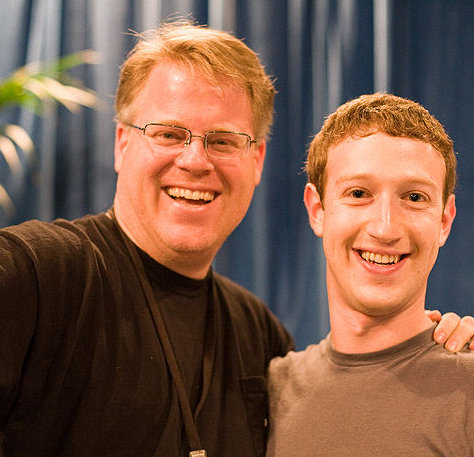

Facebook co-founder Mark Zuckerberg
with a former Microsoft evangelist who more recently joined Rackspace only to see it aligning with Microsoft a year and half later (source: Robert Scoble)
When a user does not have a Facebook account, there is no cookie and no user ID available. In this case, a visit to Techcrunch.com includes an HTTP GET request for the Like button. However, when the button is provided there is no cookie issued. Thus, it seems that the Like button itself is not used to issue cookies. However, when a site is visited which includes Facebook Connect (for instance Gizmodo.com) this application issues a cookie (fig. 2). From that moment on, visits to other websites which display the Like button result in a request for the Like button from the Facebook server including the cookie.
[...]
As indicated, after visiting a web site on which Facebook Connect has been implemented, the request for the Like button includes a cookie. This cookie has an expiration date two years from the moment it was issued. However, by browsing across web sites, additional cookies can be placed on the userââ¬Å¸s computer and these can be added later on in new requests.
[...]
Based on the cookie, the entire web behavior of an individual user can be followed. Every site that includes some kind of Facebook content will initiate an interaction with the Facebook servers, therewith disclosing information about the visited web site together with the cookie.